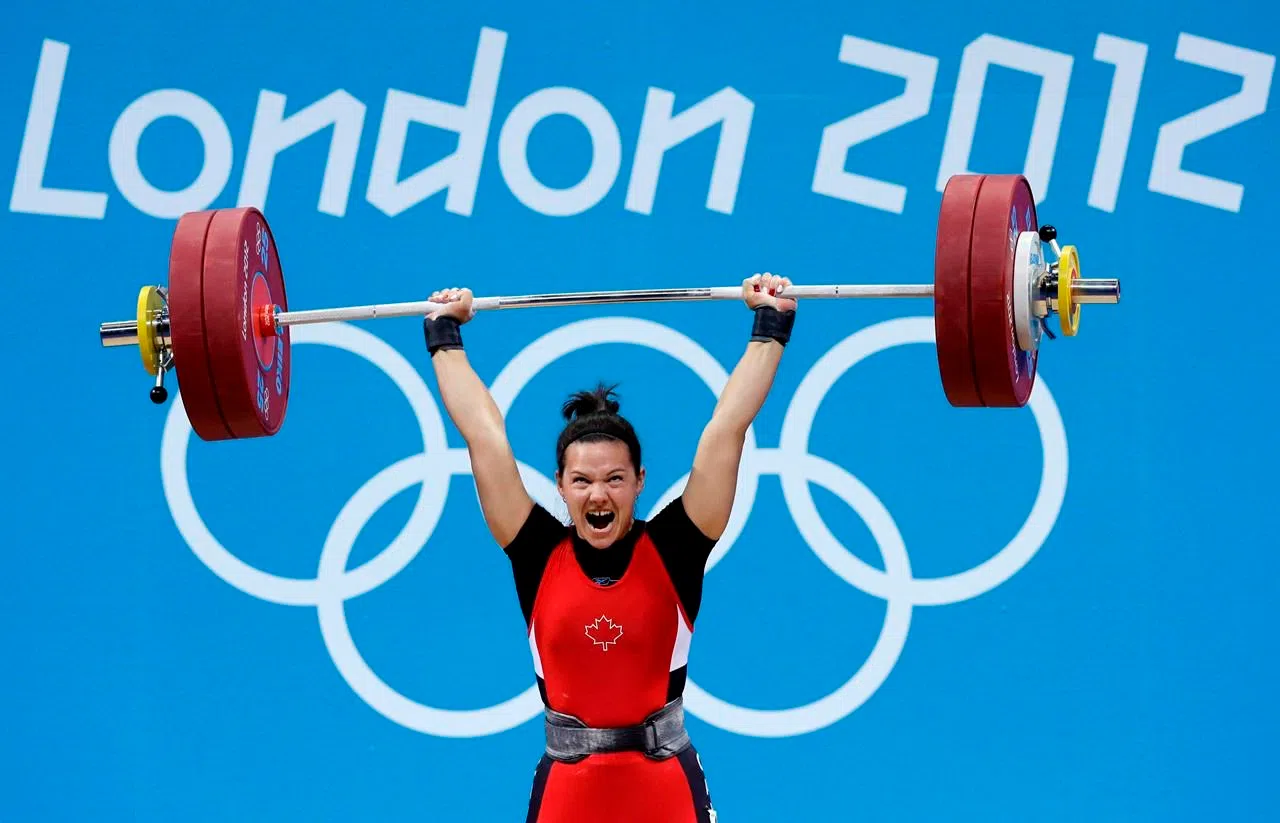
Weightlifter Christine Girard appears another step closer to gold
Canada could be adding a second gold medal to its tally from the 2012 London Olympics as weightlifter Christine Girard appears one step closer to being promoted from third place to the top of the podium.
The International Olympic Committee has stripped Russia’s Svetlana Tzarukaeva of the silver medal she won in London after retesting of her samples showed evidence of the prohibited substance dehydrochlormethyltestosterone.
Girard was the bronze medallist in the 63-kilogram class in 2012 but with gold medallist Maiya Maneza already stripped of her result for a positive retest last fall, the Canadian should eventually be bumped to first place.
The IOC did not clarify in Wednesday’s release announcing the sanctions how the medals would be redistributed. The Canadian Olympic Committee said it was checking into the matter.
